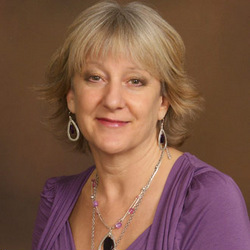The Akashic Records are an ancient idea that has seen a surge in popularity over the last few centuries. Though originally a Hindu concept born in and around the subcontinent of India and adopted by other Eastern religions, the Akashic Records are now commonly spoken of in New Age circles around the world.
It can be a little difficult to grasp what exactly someone means when they speak about the Akashic Records and, in truth, different speakers sometimes have differing definitions. At their core, however, the Akashic Records are envisioned as a kind of compendium of the entire history of the universe, along with every single being in it.  It is useful to think of the Akashic Records as a supercomputer that stores all of the data of the universe, or perhaps even as the DNA of the universe, recording every word, thought, deed, and emotion of every being that has ever existed or ever will exist.
It is useful to think of the Akashic Records as a supercomputer that stores all of the data of the universe, or perhaps even as the DNA of the universe, recording every word, thought, deed, and emotion of every being that has ever existed or ever will exist.
The Akashic Records Throughout History
The term ‘Akashic’ comes from the Sanskrit word ‘akasha’, which can be translated as something like ‘sky’, ‘space’, and even ‘luminous’. More than simply the sky or space of the physical world, however, akasha is better thought of as a spiritual ether that pervades the physical plane.
In Hinduism, akasha is considered to be the very first element, making it the basis for all the other elements of the created world. Jainism and Buddhism, as offshoots of the Hindu religion, generally hold a similar idea of akasha, considering it to be both the infinite space of the physical world, and the spiritual ground of all physical phenomena. Some writers and researchers have also claimed that the Akashic Records were accessed and used by other cultures, such as the ancient Egyptians and the ancient Celtic Druids.
It was the late 19 th century Theosophists who popularized and expanded on the idea of the Akashic Records. Writers such as H. P. Blavatsky, Alfred Percy Sinnett, and C.W. Leadbeater were some of the first to begin talking about a sort of energy of the universe that could be clairvoyantly accessed. It was Rudolf Steiner who finally coined the term ‘Akashic Records’. A philosopher and professor of anthropology, Steiner claimed that he had access to a spiritual world, an ability that he believed everyone could develop.
The Akashic Records and Edgar Cayce
The popularization of the Akashic Records in the West, though begun by the aforementioned writers, can mostly be attributed to the well-known psychic Edgar Cayce. Cayce’s skills as a psychic were widely renowned. He credited his success, in part, to his ability to access the Akashic Records.
One of Cayce’s most celebrated cases was when he was able to read the Akashic Records and find out that a six-year-old girl’s mental and physical problems were the result of an illness and a fall that she had suffered at two years of age.
Cayce’s readings were so accurate that on one occasion he was able to inform a client that his real birthday was on the 29th of June, and not the 28 th as he had thought his entire life. On another occasion Cayce even found that a client was a whole two years older than he was originally believed to be.
The Akashic Records also enabled Cayce to access information on some of his clients past lives, such as in the case of one a woman named Anna. Anna had a troubled relationship with her sister, which Cayce informed her stemmed from an incident in a past life in which Anna had stolen her sister’s husband.
Accessing the Akashic Records
The early theosophical writers generally held that everyone, with perhaps just a bit of training, could have access to the Akashic Records. Cayce held this belief as well, and recommended meditation and prayer as powerful tools that could help us open ourselves up to the information available in the astral plane. Modern New Age thinkers have generally echoed these ideas, envisioning the Akashic Records as a sort of public library open to those who will only take the time to visit.
Though this sort of democratic, open-to-all interpretation of the Akashic Records appeals to the modern mind, the situation was likely different in the ancient world, particularly within the Hindu, Buddhist, and Jain traditions. Only a small subset of the population in the ancient world received any formal religious training at all, and the instruction needed in order to access the spiritual planes of reality often took many years.
Seeking Scientific Validation
Just like with many other spiritual or religious ideas, the scientific community rejects and therefore does not carry any research out on the Akashic Records. Nevertheless, there are some ideas in modern physics which could very well be used to explain the existence of a plane which stores everything (past, present, and future) in the entire universe.

Want to speak with a psychic who understands the Akashic records? Give Psychic Libby a call at 1-866-407-7164
Nevertheless, for those who believe in the Akashic Records, not knowing how the process works pales in comparison to the amazing information and knowledge that they believe humanity has to gain from accessing them.
To talk with a psychic who understands the Akashic Records call Psychic Libby at 1-866-407-7164 (toll free US and Canada).

